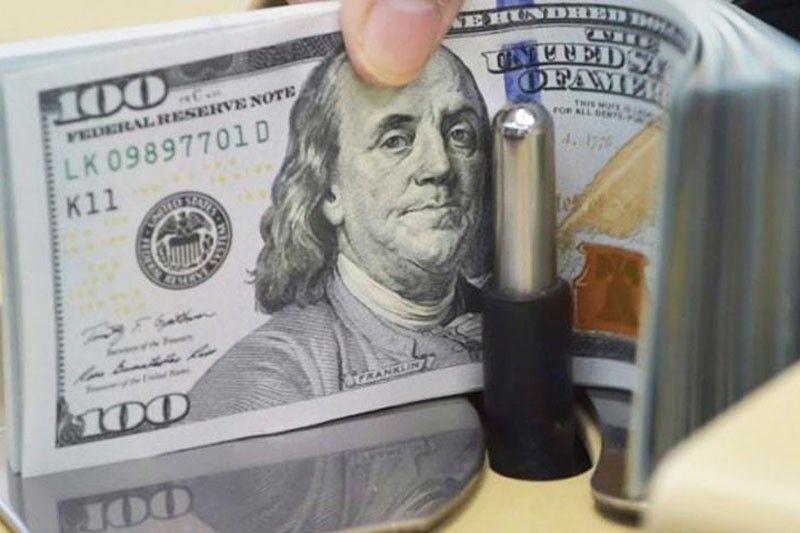Philippines external debt up 8% to $79 B in 2018

MANILA, Philippines — The country’s external debt climbed by eight percent last year due to higher borrowings by the private sector particularly banks, the Bangko Sentral ng Pilipinas (BSP) reported over the weekend.
Newly installed BSP Governor Benjamin Diokno said the country’s external debt reached $79 billion or 23.9 percent of gross domestic product (GDP) in 2018 from $73.1 billion or 23.3 percent of GDP in 2017.
Diokno attributed the increase to net availments by both public with $3.5 billion and private sectors with $3.2 billion in 2018.
However, he said the increase in resident holdings of Philippine debt papers issued offshore amounting to $1.2 billion and negative foreign exchange revaluation adjustments of $125 million partially tempered the sharp increase in the debt stock last year.
Public sector external debt was steady at $39.7 billion in end-December from $39.5 billion in end-September amid the increased financing for infrastructure development under the Build Build Build program and social spending programs.
On the other hand, private sector debt substantially increased by 6.5 percent to $39.3 billion from $36.9 billion as private banks borrowed more in preparation for the increase in the Liquidity Coverage Ratio (LCR) threshold under the Basel 3 liquidity rule and to source funding for government purchases.
The country’s foreign debt stock was also 3.3 percent higher than the end-September level of $76.4 billion.
Diokno said the increase in the debt level in the fourth quarter was due largely to net availments of $1.6 billion as private banks borrowed offshore to fund purchases of high-quality liquid assets in preparation for the increase in the LCR threshold as part of the Basel 3 reform package issued by the Basel Committee on Banking Supervision.
Diokno said positive foreign exchange revaluation adjustments amounting to $1 billion further contributed to the increase in the debt stock as the peso appreciated against the dollar during the reference period due mainly to improving domestic inflation data and strong remittance inflow.
The peso emerged as the third worst performing currency in the region after shedding 5.3 percent to end 2018 at 52.58 to $1 from 49.93 to $1 in end 2017.
The rise in the debt stock, he added, was partially offset by the $139 million increase in residents’ investments in Philippine debt papers issued offshore.
Major creditor countries were Japan with $14.4 billion followed by the US with $4 billion, the Netherlands with $3.6 billion, and the United Kingdom with $3.2 billion. In terms of currency mix, the debt stock remained largely denominated in US dollar with 61.1 percent and Japanese yen with 13.2 percent.
US dollar-denominated multi-currency loans from the World Bank and Asian Development Bank represented 14.5 percent, while the 11.2 percent balance pertained to 15 other currencies, including the Philippine peso and Euro.
Obligations to foreign banks and other financial institutions had the largest share of 33.6 percent of total outstanding debt, followed by loans from multilateral lenders with 17.4 percent and bilateral creditors with 13.8 percent.
The BSP chief said the maturity profile of the country’s external debt remained predominantly medium- to long-term or those with original maturities longer than one year with share to total at 79.7 percent or $62.9 billion, while short term accounts or those with original maturities of up to one year accounted for 20.3 percent.
Despite the increase, Diokno said key external debt indicators remained at prudent levels.
- Latest
- Trending
































